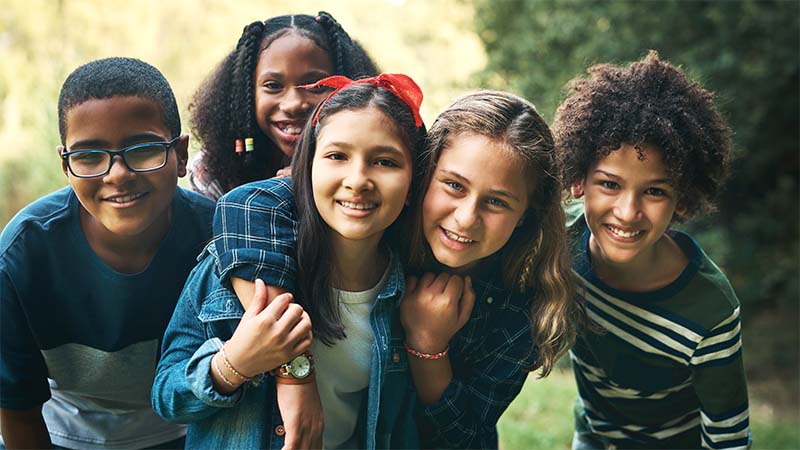Summer camps offer more than just a break from the routine of school life; they provide a unique environment where children can grow emotionally and develop resilience. These activities are carefully crafted to challenge children in a supportive setting, helping them build critical life skills. Emotional growth at camp is not just a byproduct but a central goal, with activities designed to enhance self-esteem, encourage teamwork, and foster independence. As children engage in various camp activities, they learn to navigate challenges, build friendships, and discover their strengths and capabilities. This article explores how summer camp activities contribute to emotional growth and resilience in children, setting the foundation for their future well-being.
Developing Self-Esteem and Confidence
One of the primary benefits of summer camp is the development of self-esteem and confidence in children. In a new and supportive environment, children are encouraged to step out of their comfort zones and take on new challenges. This section explores the various ways camp activities contribute to boosting children’s self-esteem and confidence.
Overcoming Challenges
- Summer camp activities are designed to present children with manageable challenges, such as climbing a rock wall or navigating a ropes course. These activities push children to try new things and face their fears in a safe and supportive setting.
- By successfully overcoming these challenges, children experience a sense of accomplishment. Each success, no matter how small, reinforces their belief in their abilities and builds their confidence.
- Camp counselors play a crucial role by providing encouragement and positive reinforcement, helping children to see their progress and celebrate their achievements.
Skill Development
- Camps often offer a variety of activities that allow children to explore different interests and develop new skills, such as arts and crafts, sports, or nature exploration.
- Learning new skills and improving existing ones gives children a sense of mastery and pride in their abilities. This, in turn, enhances their self-esteem as they realize their potential.
- The non-competitive environment of many camp activities ensures that children can focus on personal growth and enjoyment rather than comparison with peers.
Through overcoming challenges and developing new skills, children at summer camp build self-esteem and confidence. These experiences teach them to trust in their abilities and feel proud of their achievements, laying a strong foundation for future challenges and successes. The supportive camp environment ensures that every child feels valued and capable, fostering a positive self-image that will benefit them long after camp has ended.
Fostering Independence and Responsibility
Summer camps provide an ideal setting for fostering independence and responsibility in children. Away from the direct supervision of their parents, children learn to make decisions, take care of themselves, and contribute to their camp community. This section discusses how camp activities encourage children to develop these crucial life skills.
Decision-Making
- Many camp activities require children to make choices, such as selecting which activities to participate in or how to approach a group project. This autonomy helps children learn the importance of making thoughtful decisions.
- As children make choices and experience the outcomes, they learn from both their successes and mistakes. This process teaches them critical thinking and problem-solving skills.
- Counselors guide and support children through this decision-making process, ensuring they feel empowered and confident in their ability to choose wisely.

Personal Responsibility
- At camp, children are often responsible for managing their belongings, keeping their living spaces tidy, and adhering to camp schedules. These responsibilities teach them the importance of organization and accountability.
- Daily routines such as setting up campfires, preparing meals, or cleaning up after activities help children understand the value of contributing to the community.
- By taking on these responsibilities, children learn to be self-reliant and develop a sense of pride in their ability to take care of themselves and their surroundings.
Fostering independence and responsibility at summer camp equips children with essential life skills. The experiences of making decisions and managing responsibilities in a supportive environment help children grow into capable and self-sufficient individuals. These skills are invaluable as children navigate the complexities of daily life, both at home and in their future endeavors.
Building Social Skills and Teamwork
Summer camp is a social microcosm where children learn to interact with peers and develop strong social skills. Activities at camp often require teamwork and collaboration, helping children to build meaningful relationships and work effectively with others. This section explores how camp activities enhance social skills and promote teamwork.
Collaboration and Cooperation
- Camp activities such as group games, team sports, and collaborative projects require children to work together towards a common goal. These activities teach the importance of cooperation and the value of each team member’s contribution.
- Children learn to communicate effectively, share ideas, and listen to others. This fosters a sense of mutual respect and understanding among peers.
- Through teamwork, children experience the joy of collective achievement and the satisfaction of overcoming challenges together.

Conflict Resolution
- Spending time with peers in a camp setting inevitably leads to conflicts and disagreements. Camp provides a safe environment for children to learn how to navigate and resolve these conflicts constructively.
- Counselors facilitate conflict resolution by guiding children through the process of expressing their feelings, understanding others’ perspectives, and finding mutually agreeable solutions.
- These experiences teach children valuable interpersonal skills and help them build stronger, more resilient relationships.
By building social skills and promoting teamwork, summer camps prepare children for the interpersonal dynamics of the real world. The ability to collaborate, communicate, and resolve conflicts are essential skills that children will carry with them throughout their lives. The friendships and connections made at camp often last a lifetime, providing a strong support network for future challenges.
Encouraging Emotional Expression and Coping Strategies
Emotional expression and the development of healthy coping strategies are critical components of emotional growth. Summer camps provide a unique environment where children can explore and express their emotions freely. This section discusses how camp activities encourage emotional expression and help children develop effective coping strategies.
Creative Expression
- Many camps offer activities such as art, music, drama, and writing, which provide outlets for children to express their emotions creatively. These activities allow children to explore their feelings in a non-judgmental space.
- Creative expression helps children process complex emotions and develop a deeper understanding of themselves. It also fosters empathy as children share and appreciate each other’s creative works.
- Counselors encourage and support creative activities, helping children feel comfortable expressing their emotions openly.
Mindfulness and Relaxation
- Camps often incorporate mindfulness and relaxation techniques, such as yoga, meditation, and nature walks, into their programs. These activities teach children how to calm their minds and manage stress.
- Practicing mindfulness helps children become more aware of their emotions and develop a sense of inner peace. It also provides them with tools to cope with anxiety and difficult situations.
- By learning relaxation techniques, children can better handle the emotional ups and downs of daily life, both at camp and beyond.
Encouraging emotional expression and teaching coping strategies are essential for children’s emotional growth. Summer camp activities provide children with the tools to express their feelings healthily and manage stress effectively. These skills are crucial for emotional resilience, helping children navigate the challenges of life with confidence and poise.
Conclusion
Summer camps play a pivotal role in fostering emotional growth and resilience in children. Through carefully designed activities, camps help children build self-esteem, develop independence, enhance social skills, and learn healthy emotional expression. These experiences provide a strong foundation for children to become emotionally resilient individuals capable of navigating life’s challenges. As children return from camp with newfound confidence and skills, they are better equipped to face the future with optimism and strength. Investing in summer camp experiences is an investment in the emotional well-being and resilience of our children, preparing them for a bright and successful future.
